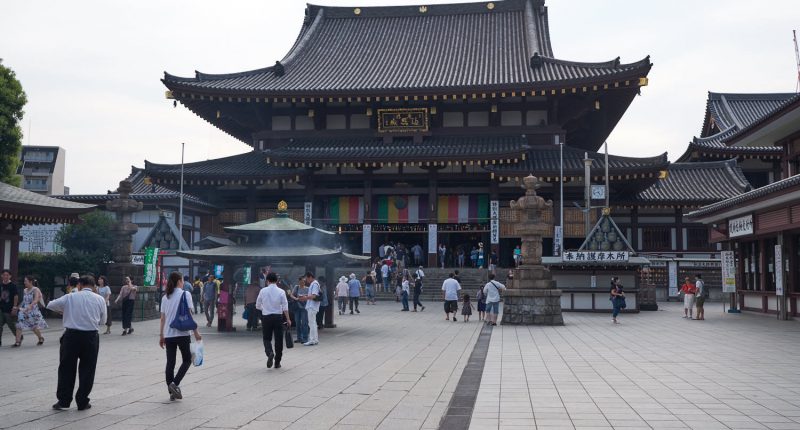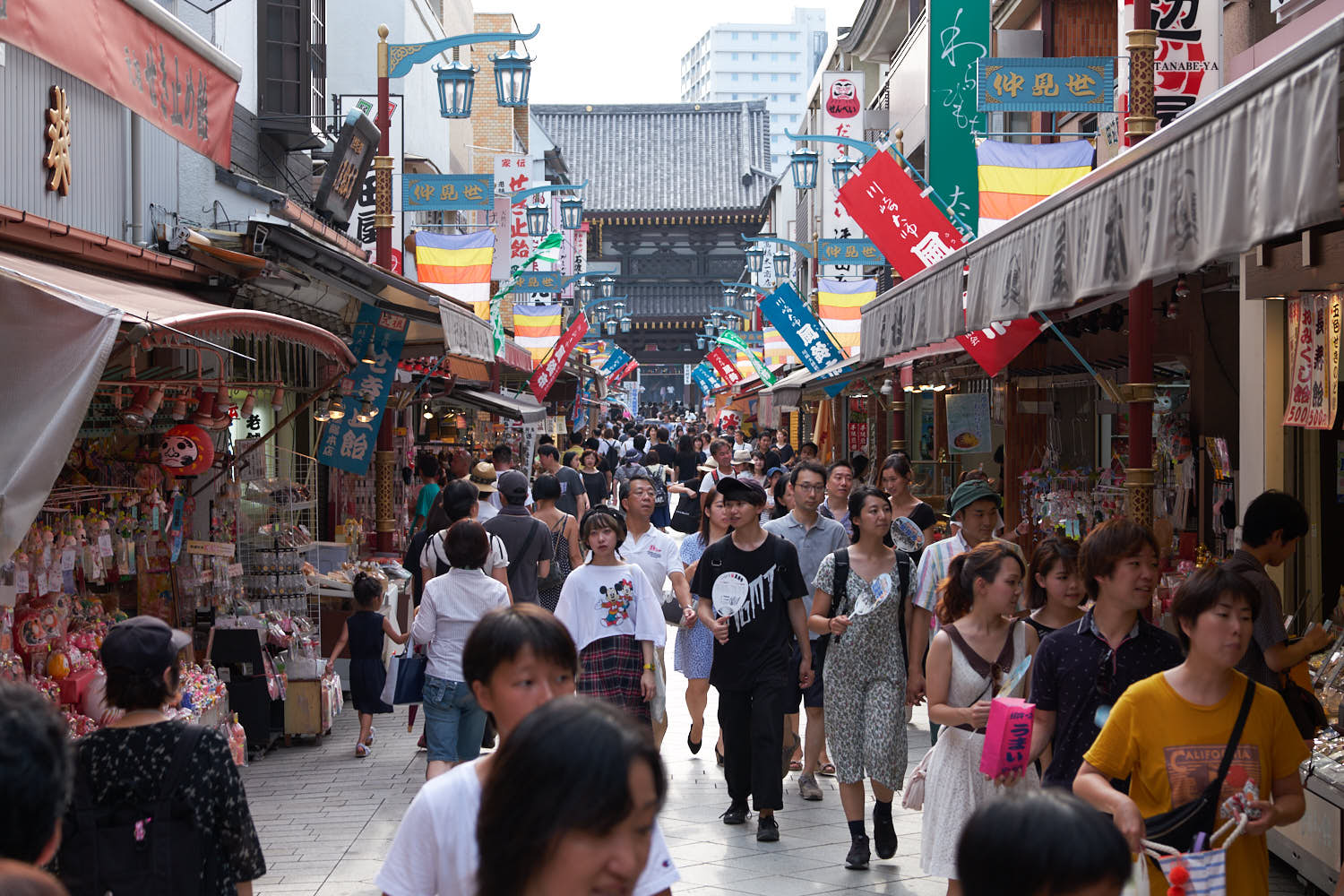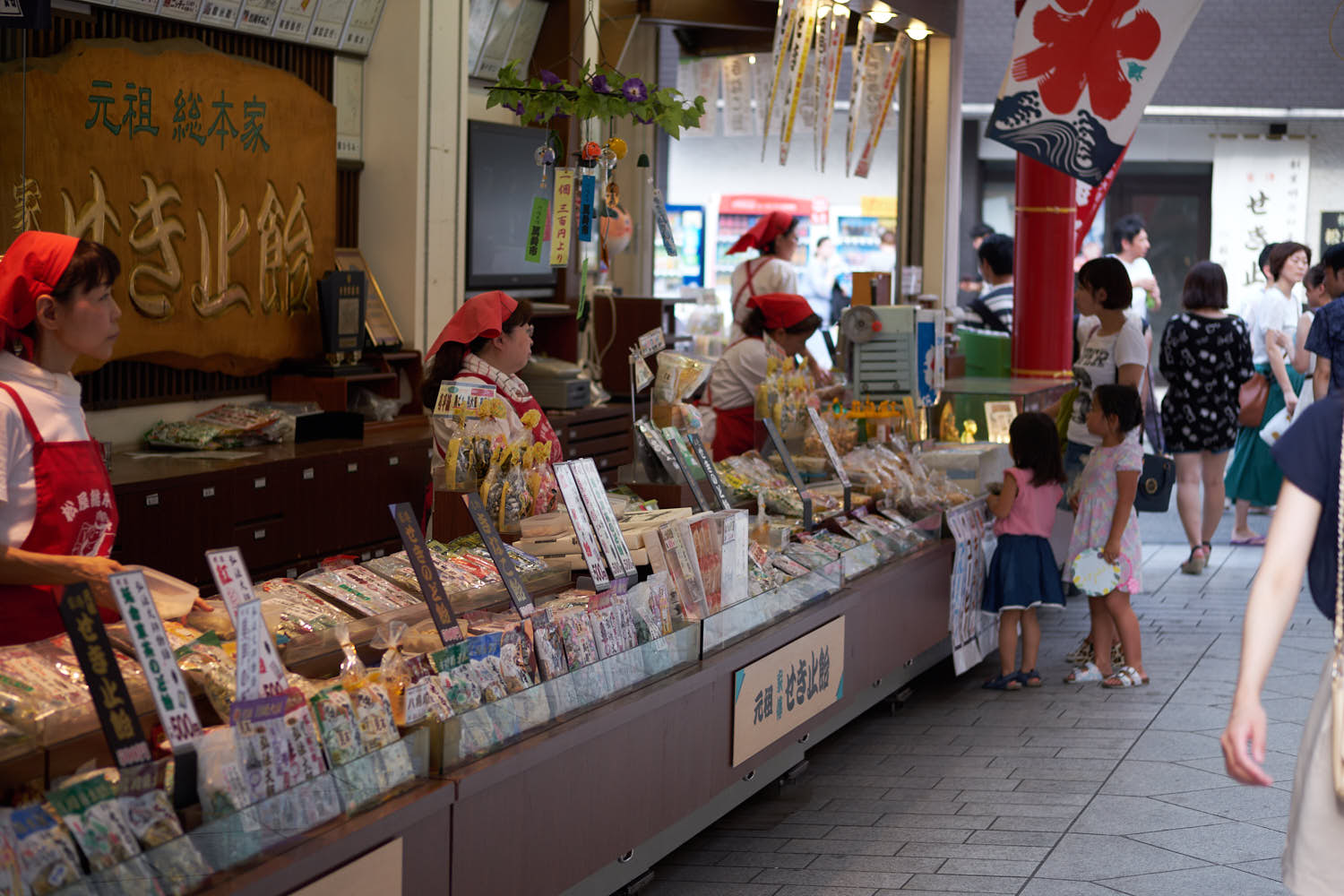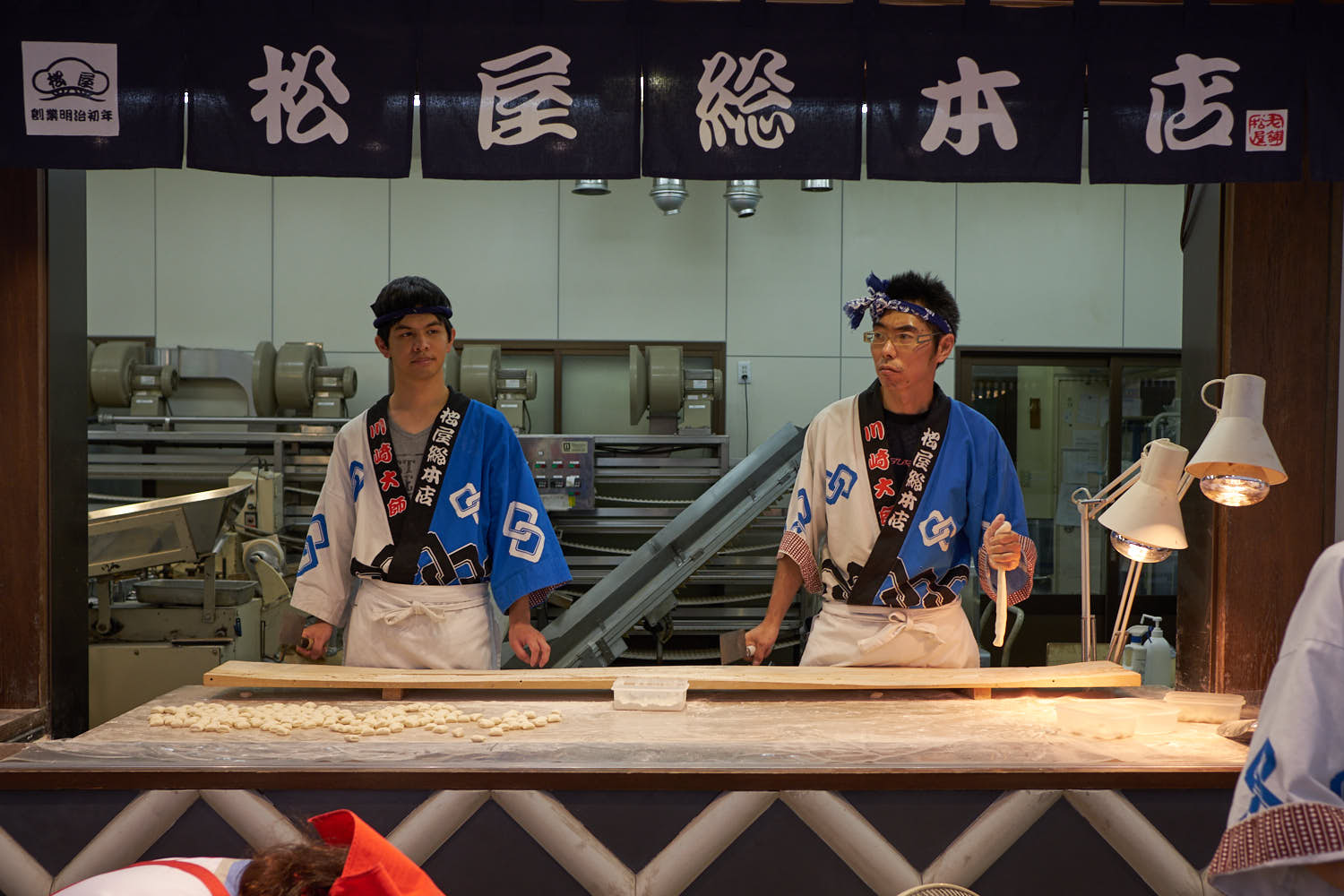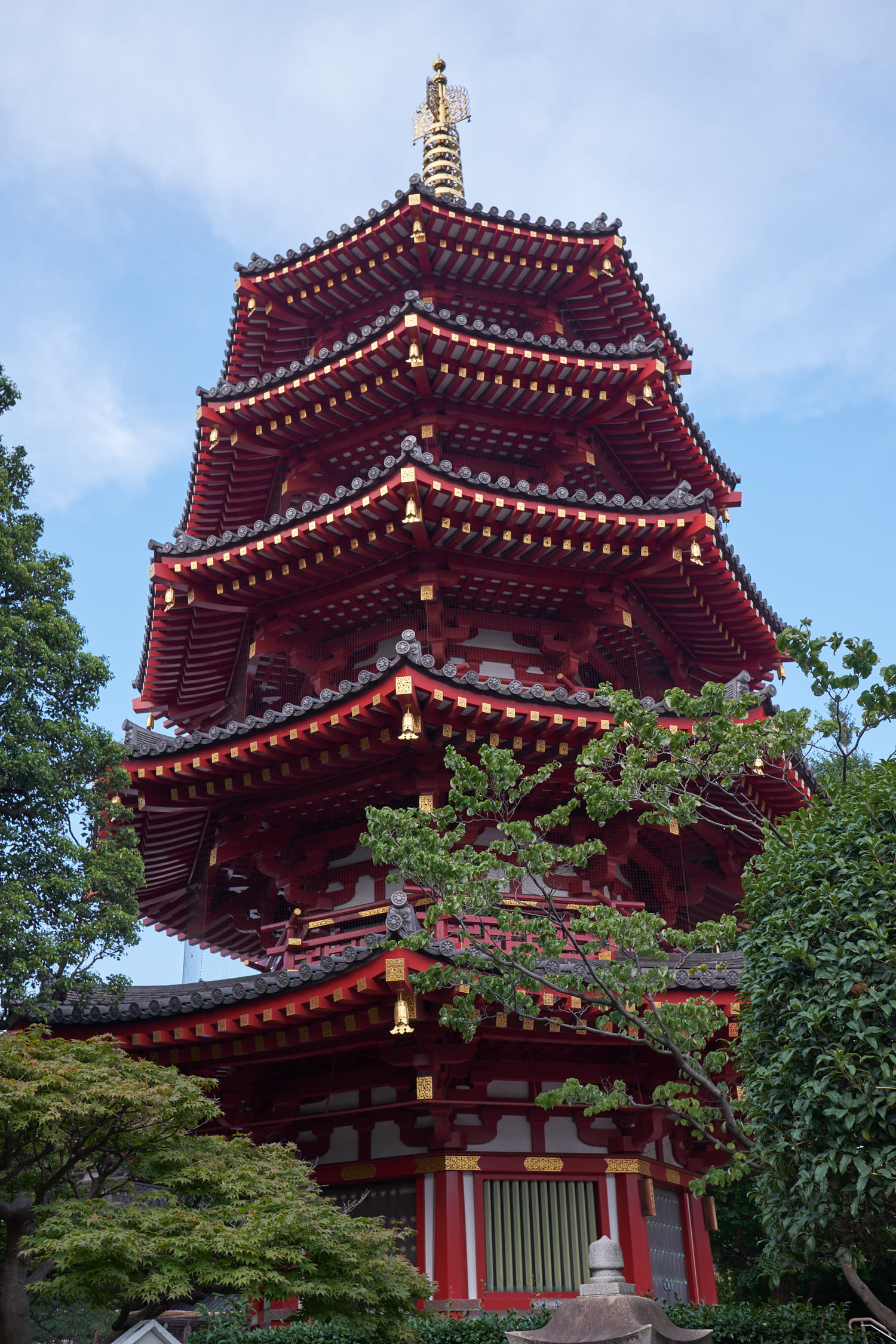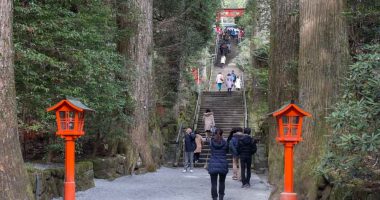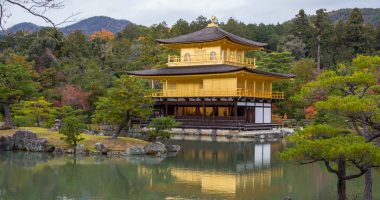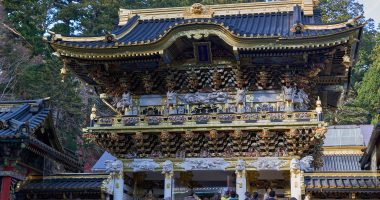Kawasaki Daishi (川崎大師) is an important Buddhist temple in Kawasaki. The temple’s history dates back to 1128 CE when it was built by a Buddhist priest called Sonken and a samurai called Kanenori. Kanenori had been exiled from his hometown of Owari and had eventually settled in Kawasaki, making a living as a fisherman. Pondering his fate at the age of 42 years, Kanenori is had a dream in which a priest appeared beseeching him to find a carving of the priest’s image which had been thrown at sea. Following these orders, Kanenori went out to see and cast his net, dragging up an image of Kobo Daishi, a Buddhist monk who lived in the 8th and 9th century and founded the Shingon or “True Word” school of Buddhism. Later, Sonken happened to see this statue and was so moved that they together decided to build the temple. Today it is the headquarters of the Chizan School of Shingon Buddhism.
As with many temples in Tokyo, the original structures were destroyed during the air raids of World War II, and the buildings you see today are post-war reconstructions.
The grounds of the temple are quite extensive and there is much to explore. But it is perhaps the shop-lined street towards the main building which gives visiting the temple a special charm. These are slightly less touristy than the shops of Nakamise in Asakusa. During the annual wind chime festival in July is an excellent time to visit.
